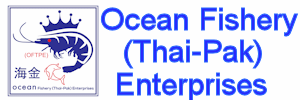Fishery and Aquaculture Country Profile for Grenada
- aquatic species caught by country or area, by species items, by
FAO major fishing areas, and year, for all commercial, industrial,
recreational and subsistence purposes. The harvest from mariculture,
aquaculture and other kinds of fish farming is also included.
About Large Pelagic Fishing in Grenada:
Grenada has developed its large pelagic fisheries
with the technical assistance primarily from the Cuban Government and later from
the Japanese government. Not only did the Grenadian fishers embrace the Cuban
longline technology but also they began to adopt a scaled down version of the
Cuban longline gear to operate from their many smaller, artisanal boats. More
recent technical assistance from the Government of Japan complemented their
efforts to target the large pelagic fish species. Today there are about 922
fishers, that operate from 385 vessels targeting those species in Grenada,
predominantly with longline gear; the vessels range in length from 4.2 to 18.2
metres (14 to 60 feet), and fish for periods lasting from 1 to 7-day trips. The
species landed include
yellowfin tuna,
swordfish,
blue marlin,
dolphinfish,
wahoo, kingfish, sailfish, and blackfin tuna. The longline fishery mainly
targets yellowfin tuna for high quality export to the USA by cargo plane
Grenada’s data collection of large pelagic species is more complete than for the
other species and species groups in its fishing industry. The fisheries division
estimates that it captures data on 80 percent of the large pelagic fish species
landed. The system used for large pelagic species is a total sampling at the 6
fish markets around the country, where they are landed. Effort data is also
recorded for the large pelagic fisheries. Grenada has a draft fisheries
management plan, but no specific strategy for large pelagic fish species have
been elaborated.
Ocean
Health Index - Grenada - The Ocean Health Index is a valuable tool for the
ongoing assessment of ocean health. By providing a means to advance
comprehensive ocean policy and compare future progress, the Index
can inform decisions about how to use or protect marine ecosystems.
The Index is a collaborative effort, made possible through
contributions from more than 65 scientists/ocean experts and
partnerships between organizations including the National Center for
Ecological Analysis and Synthesis, Sea Around Us, Conservation
International, National Geographic, and the New England Aquarium.
Information for Grenada




